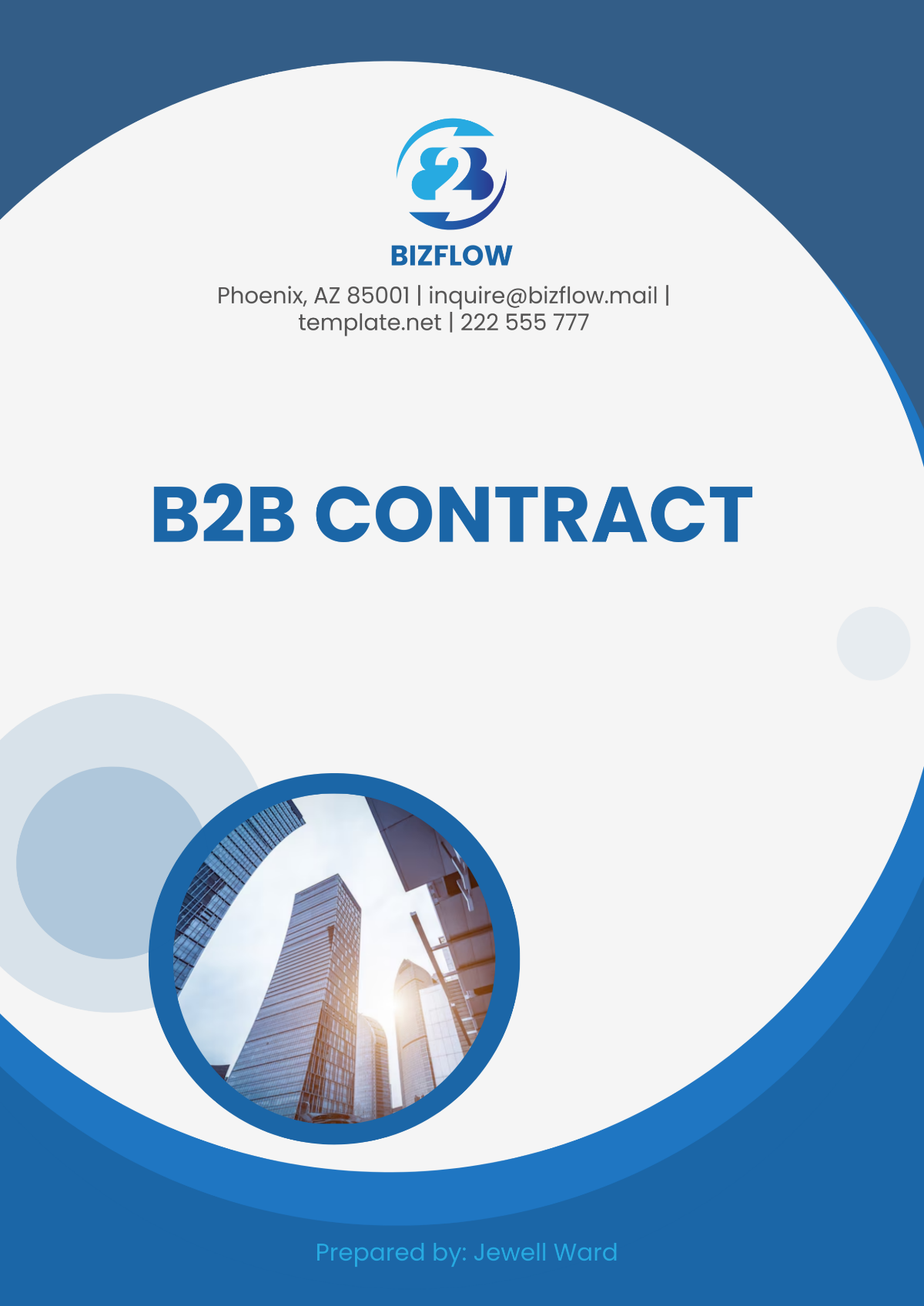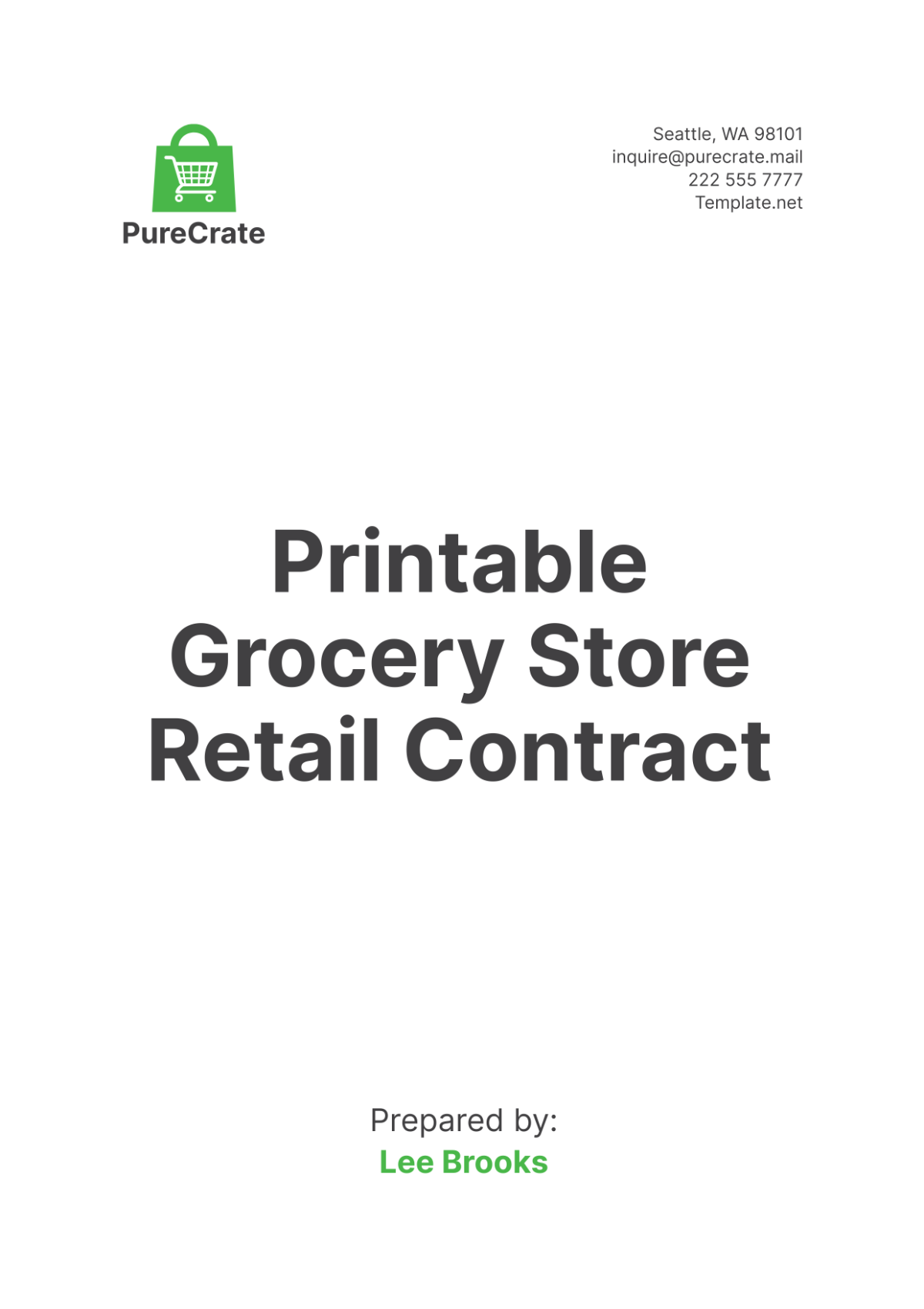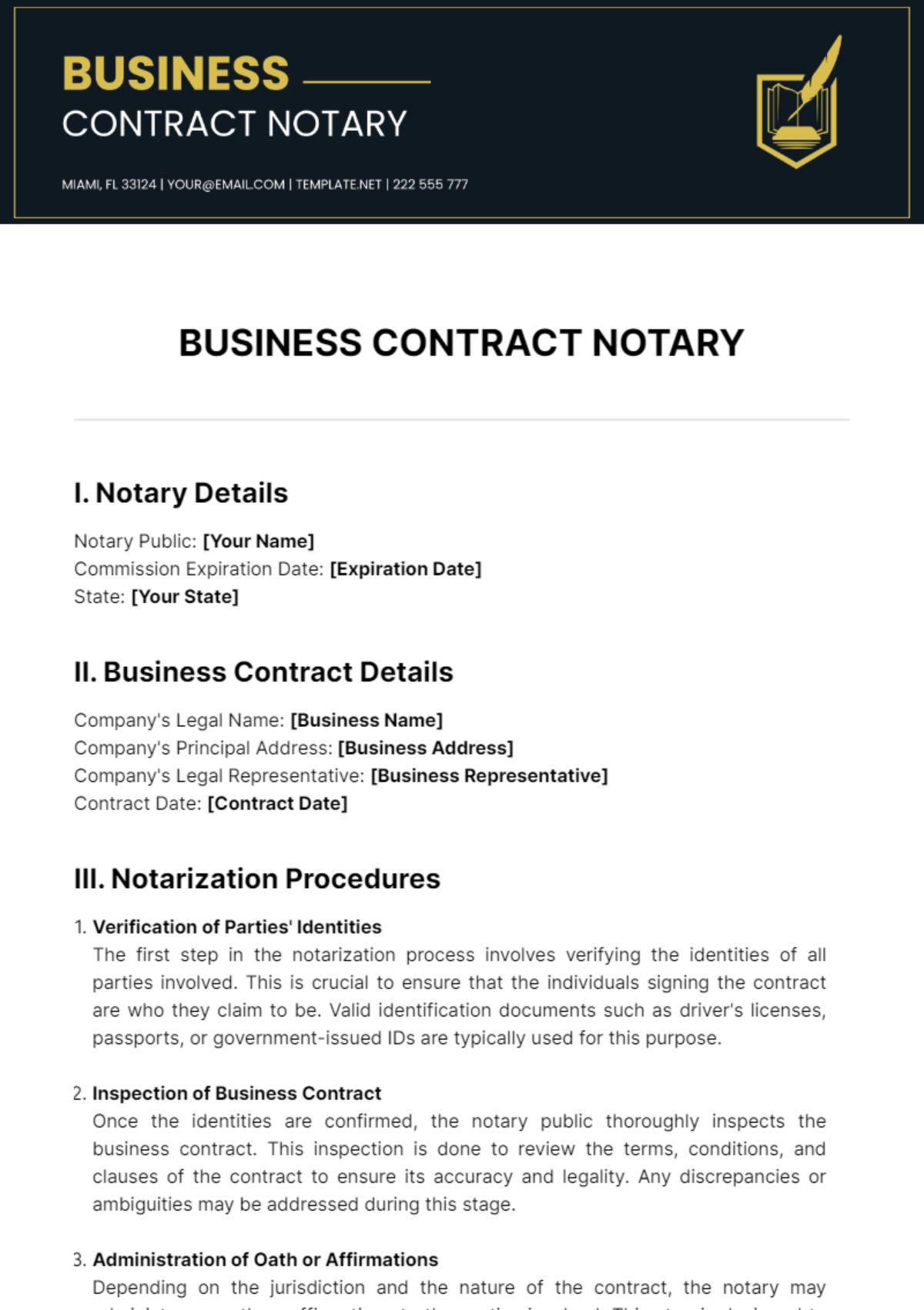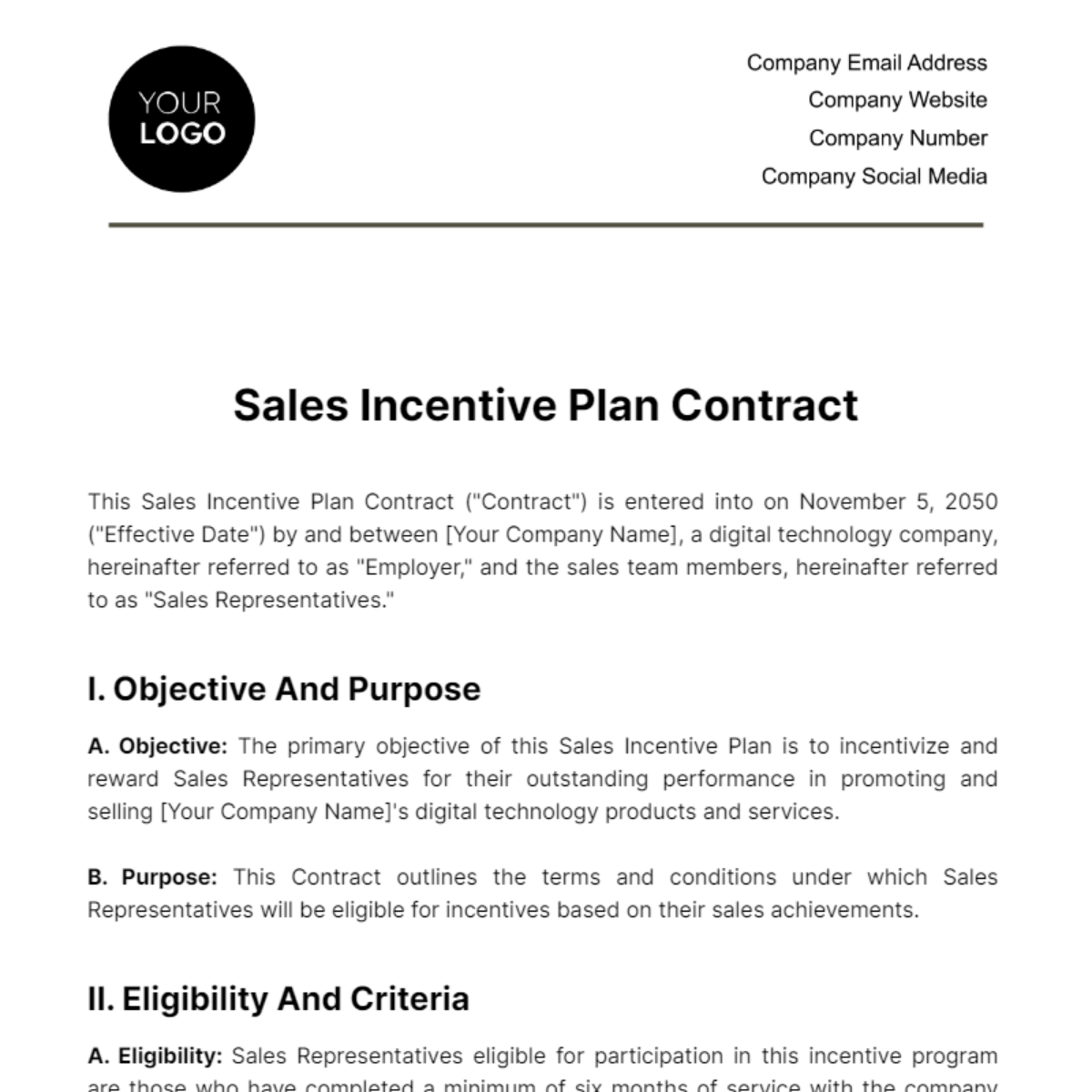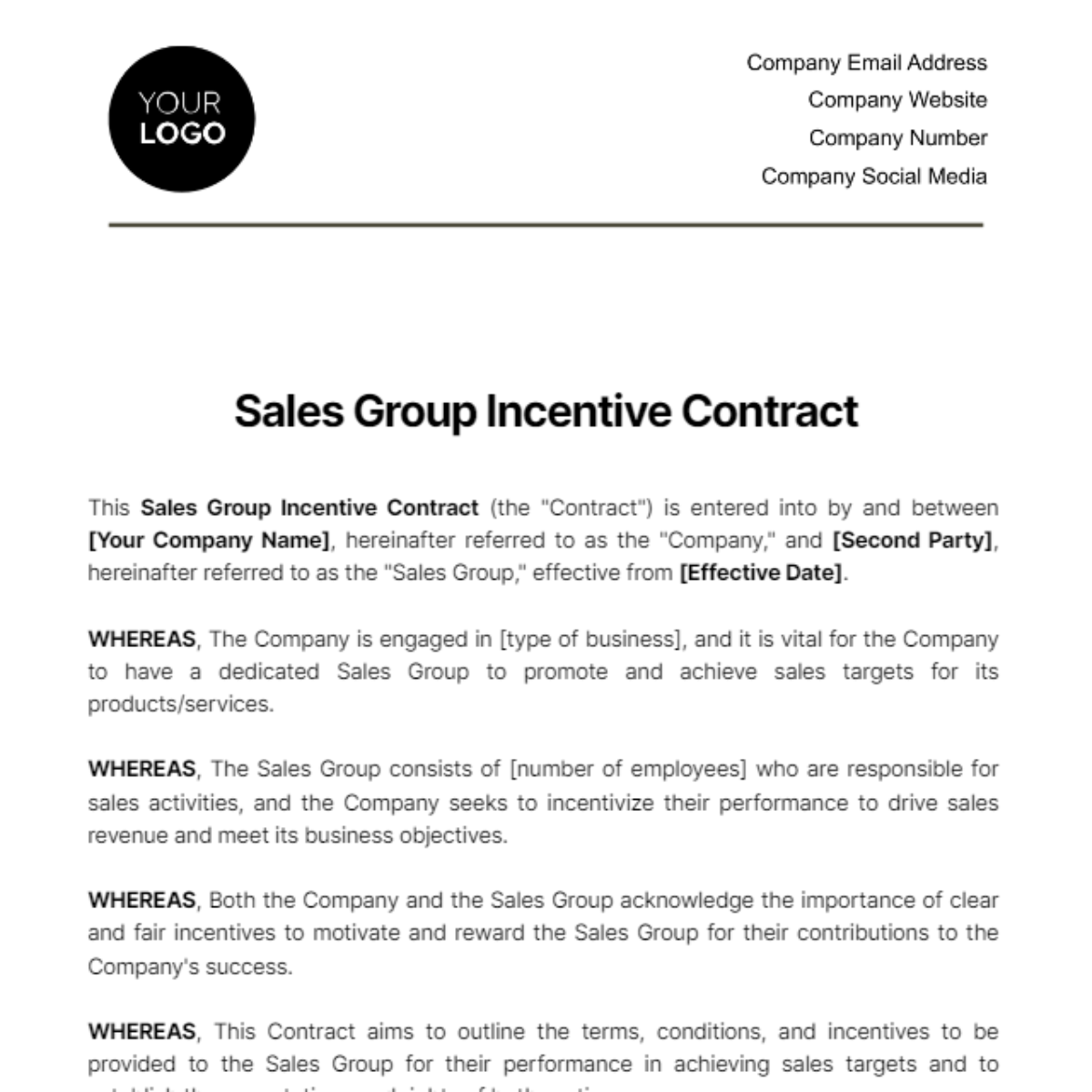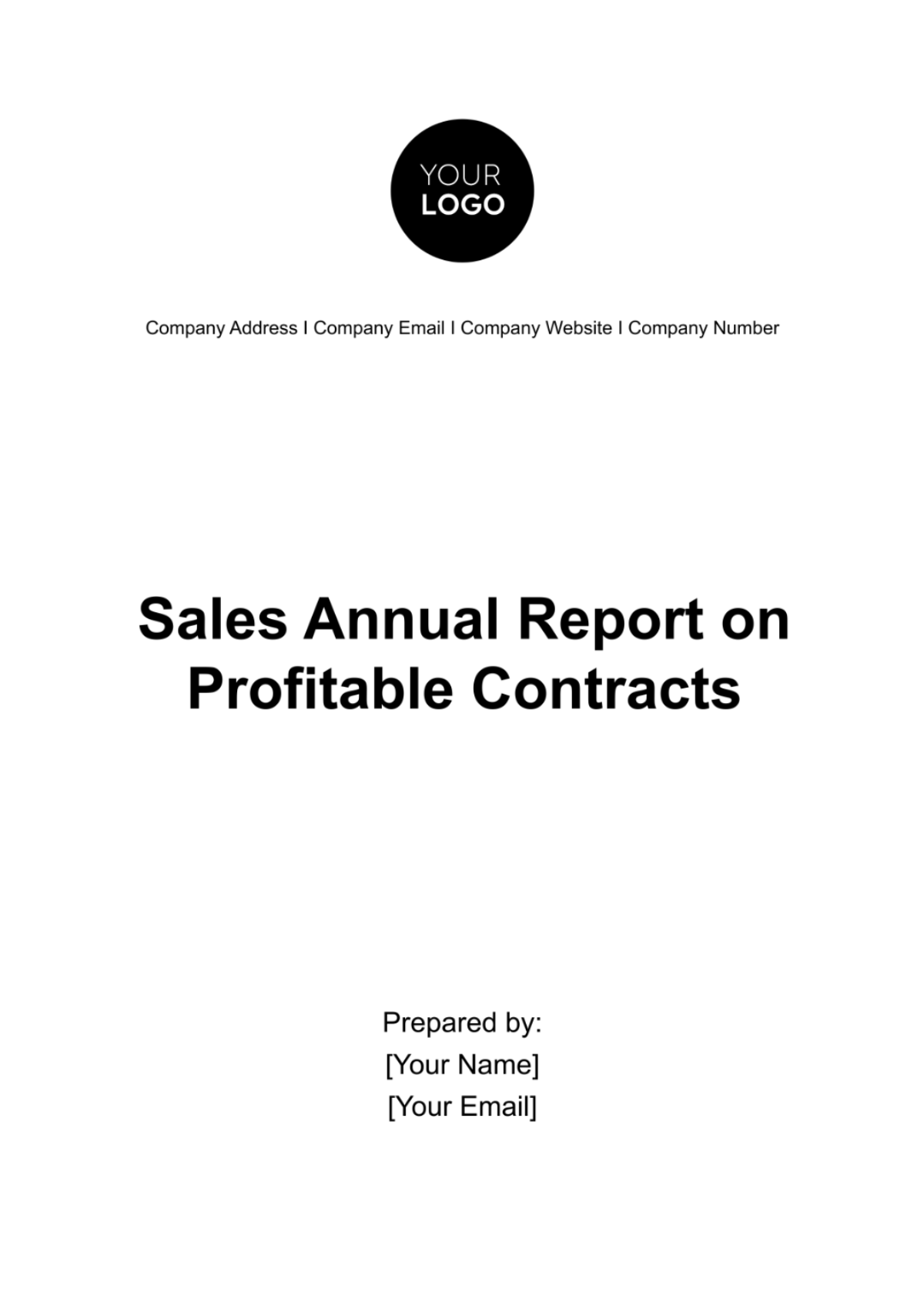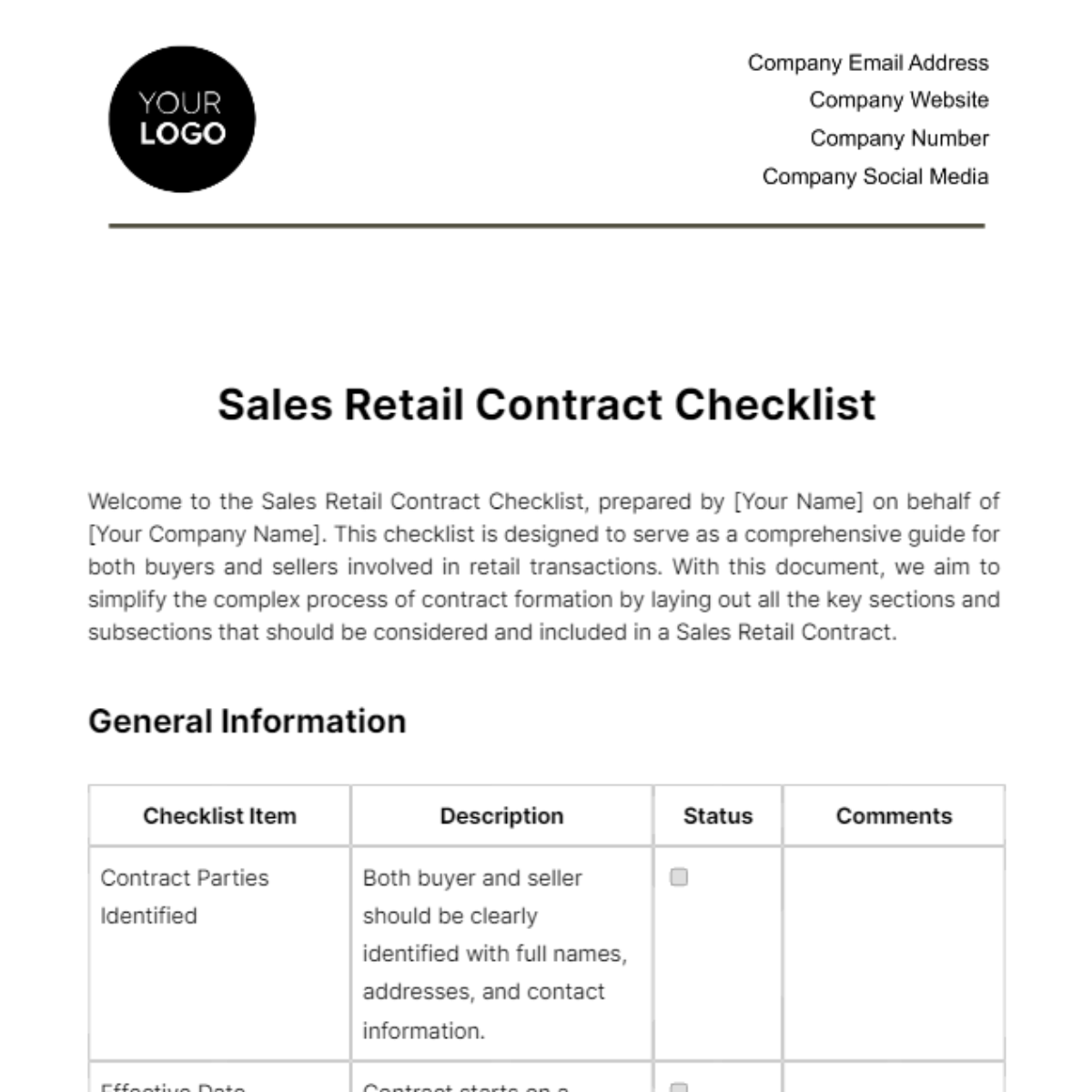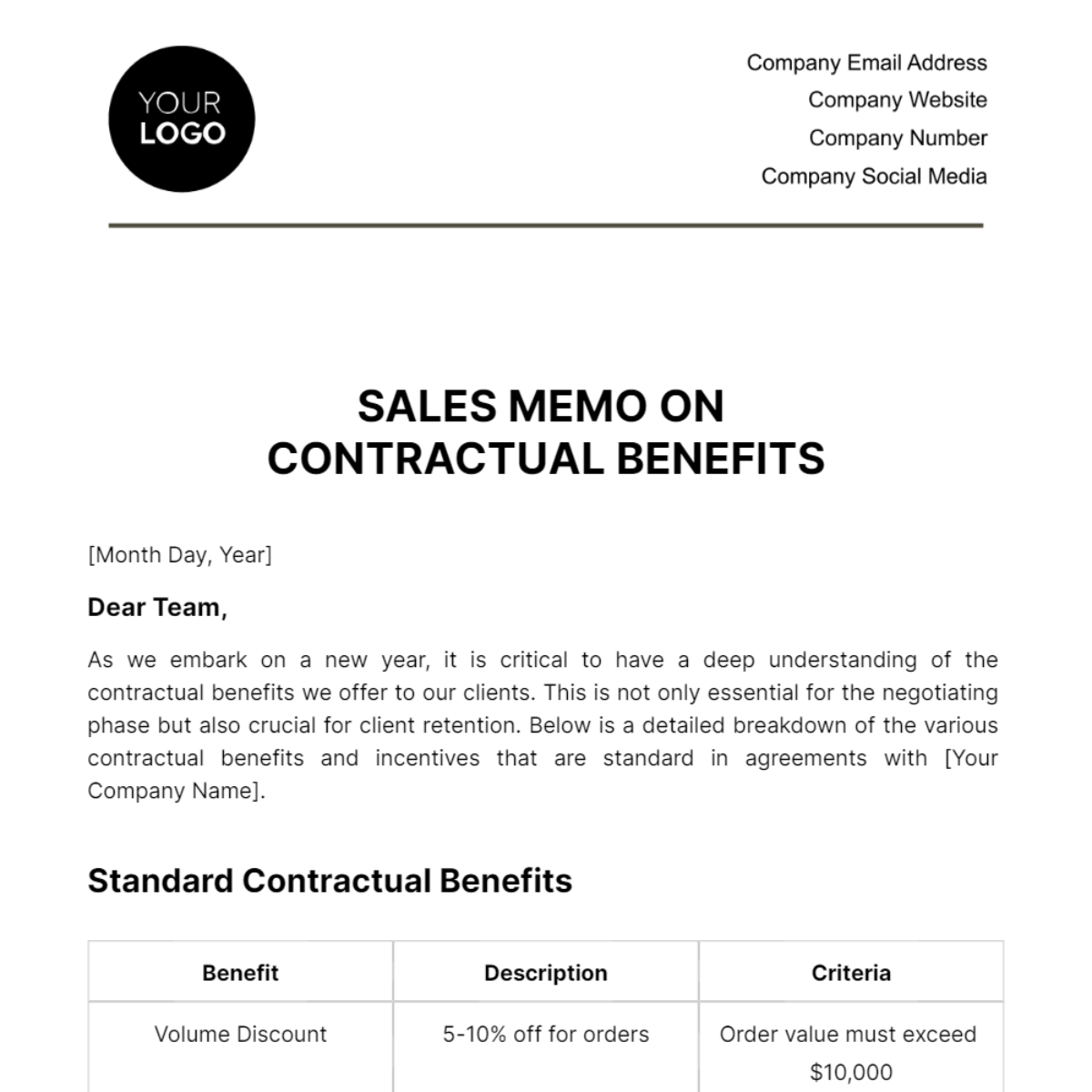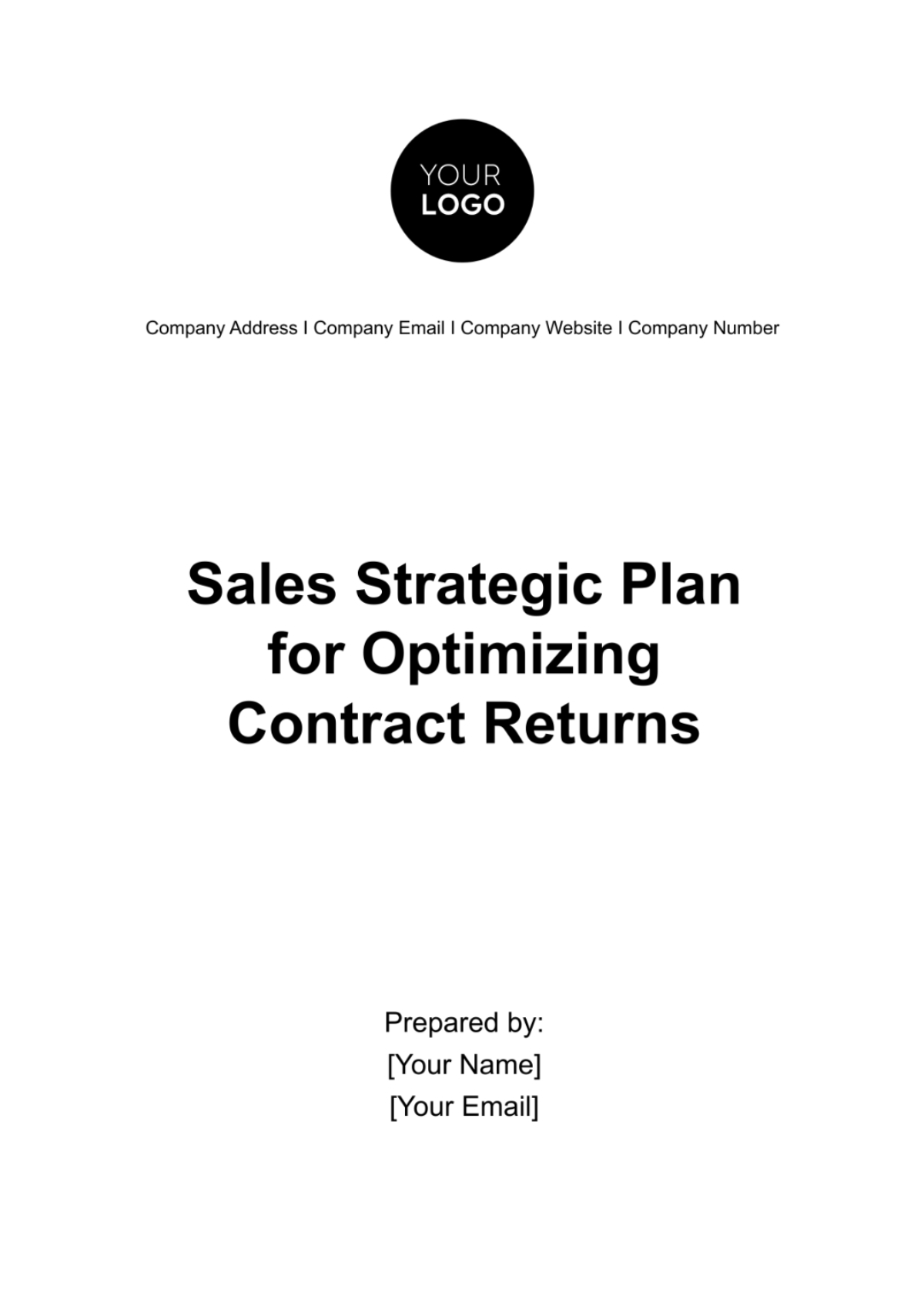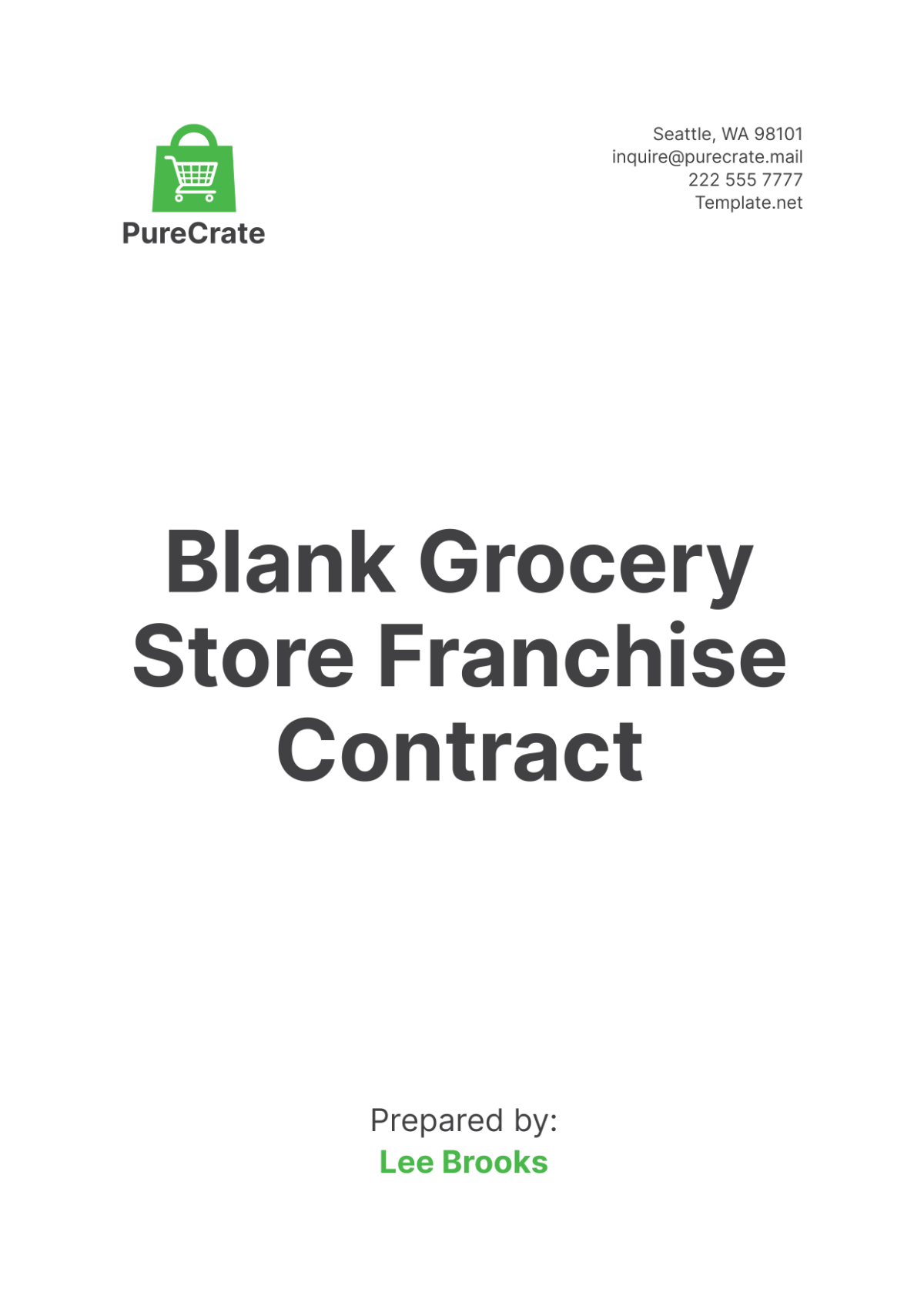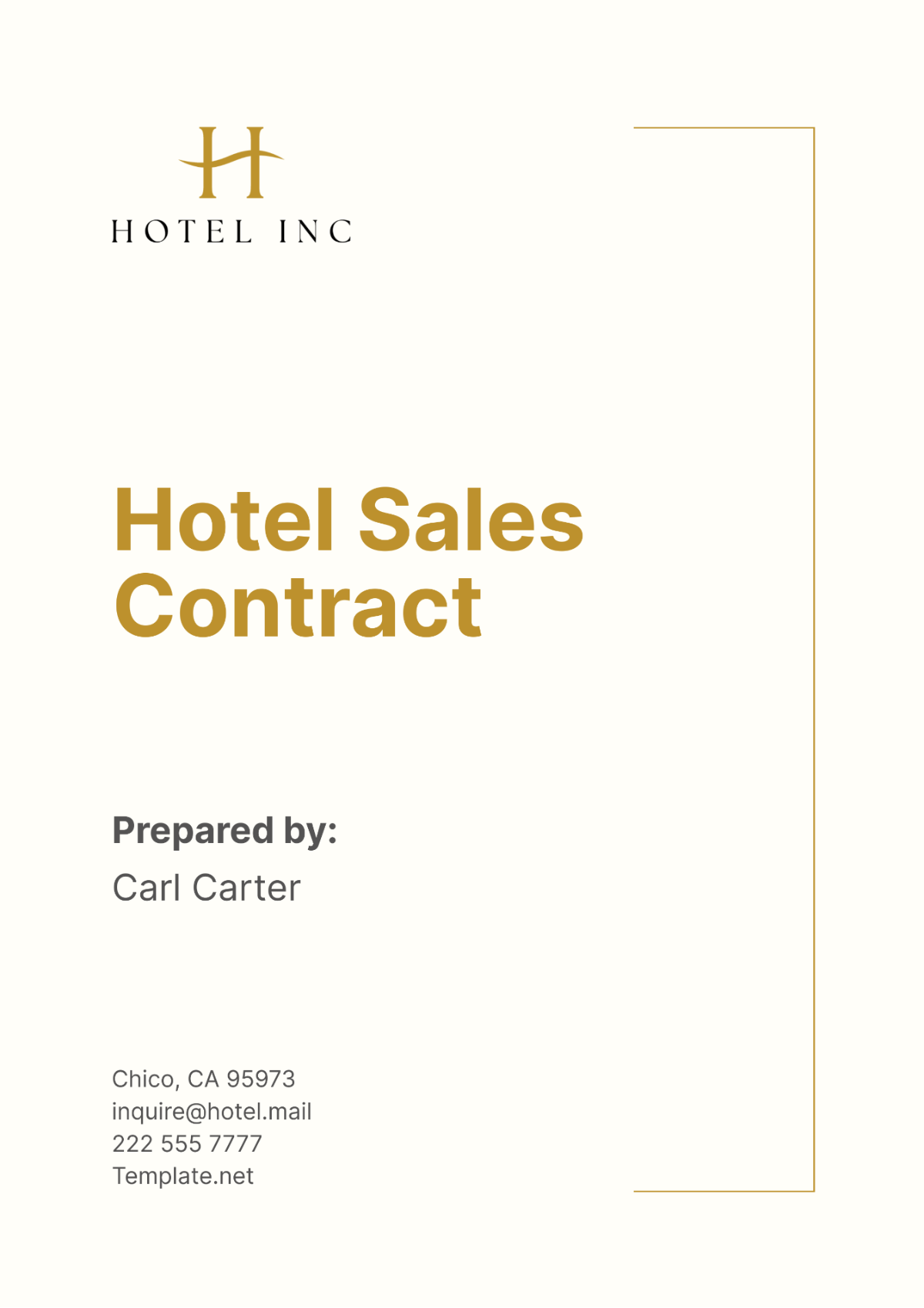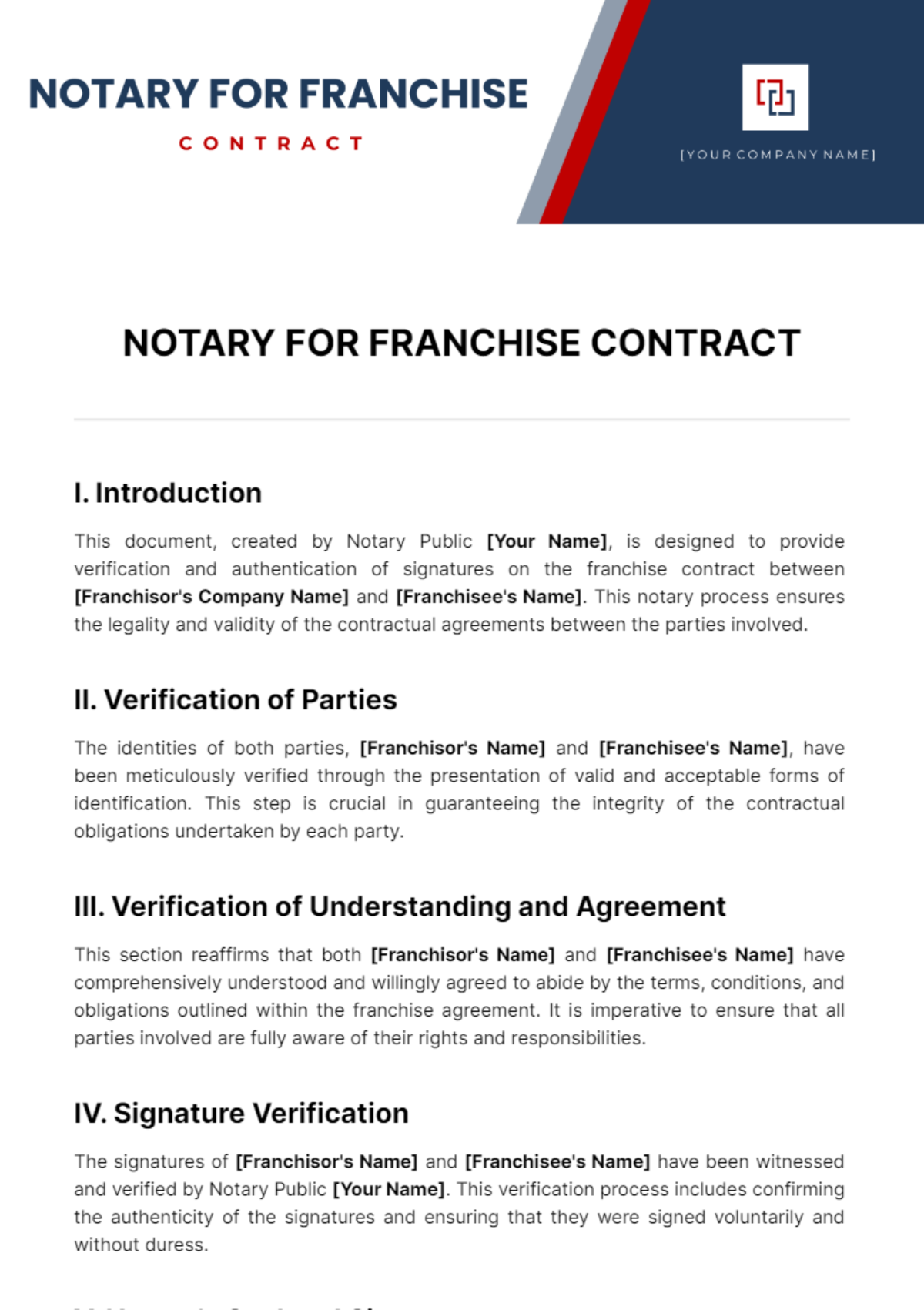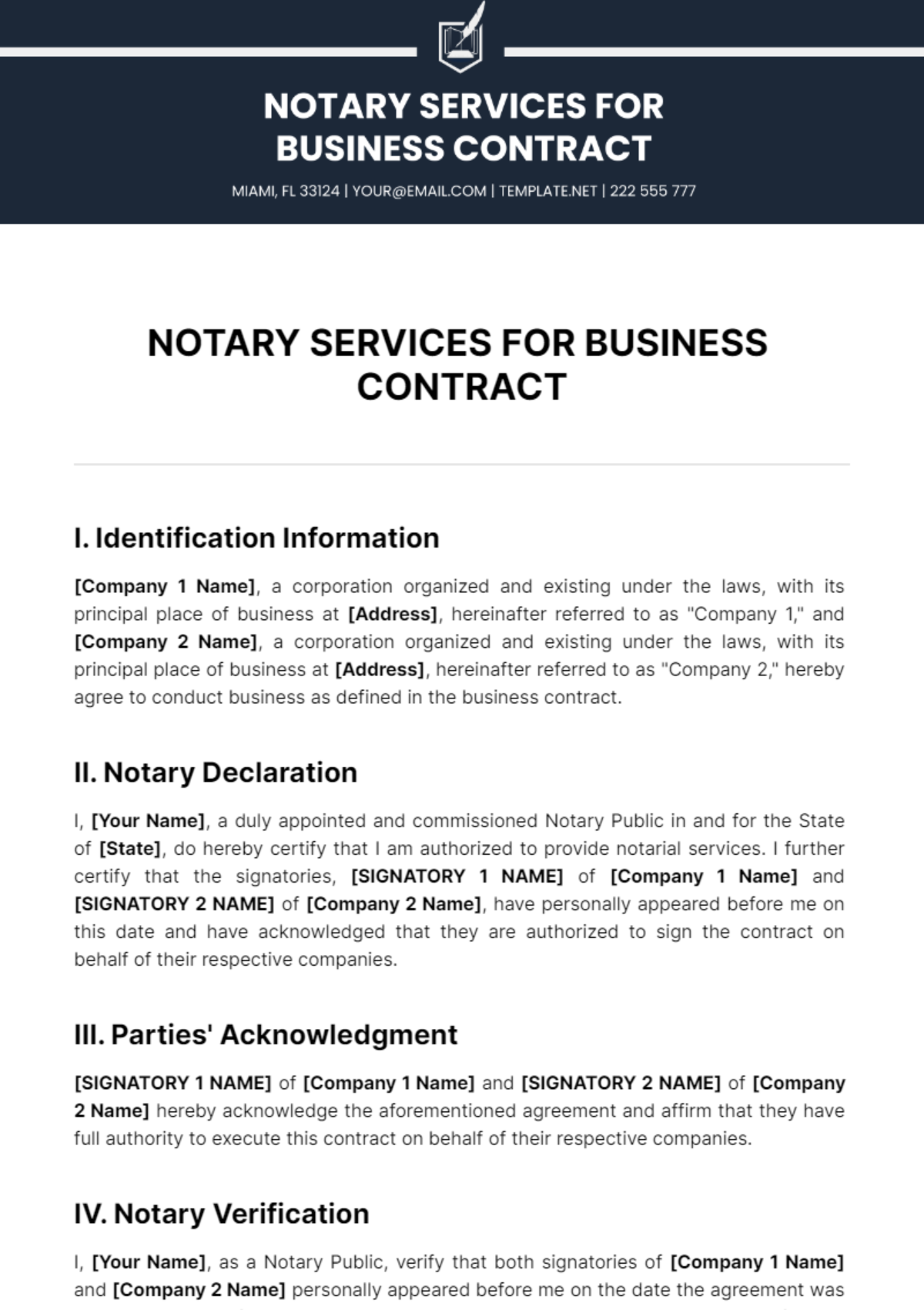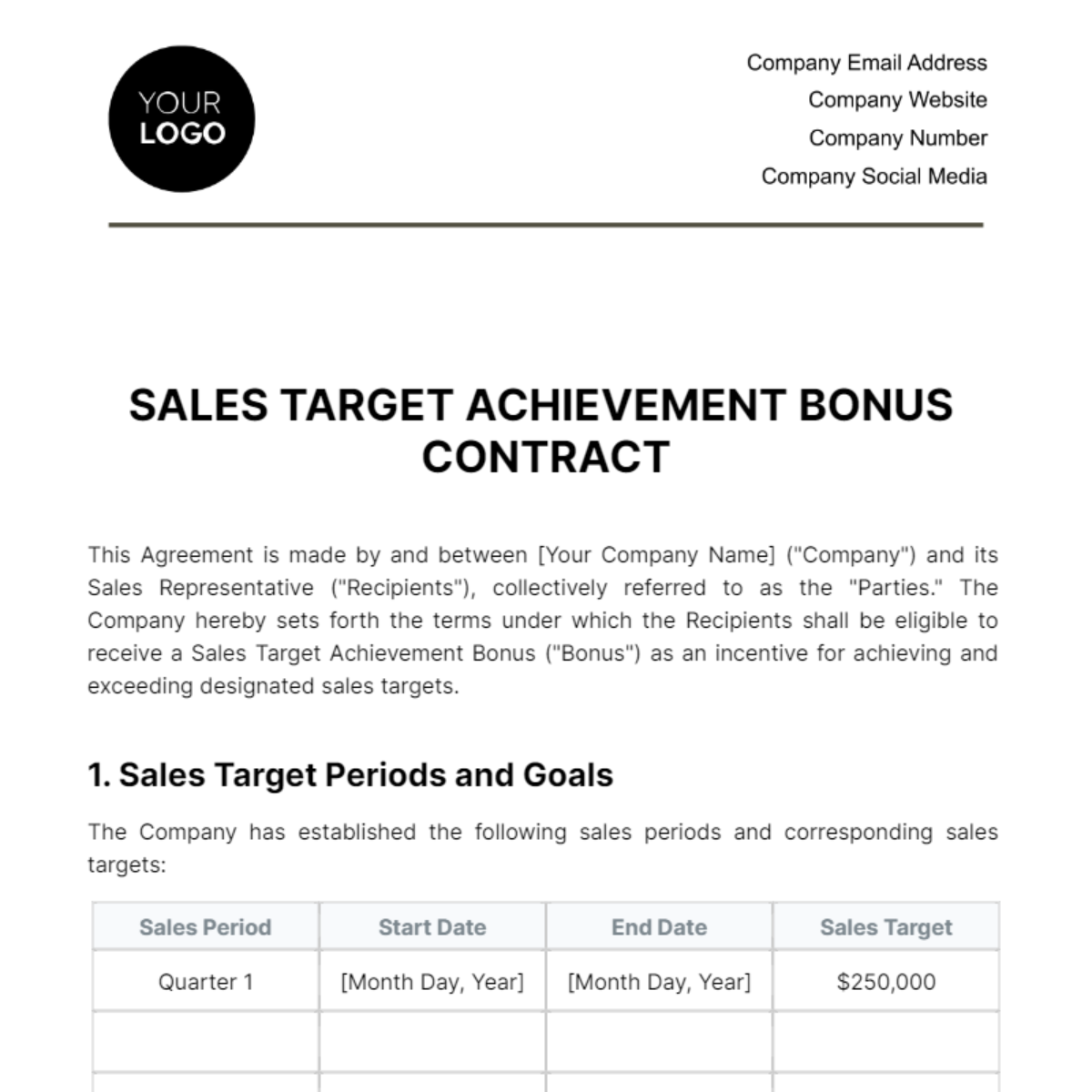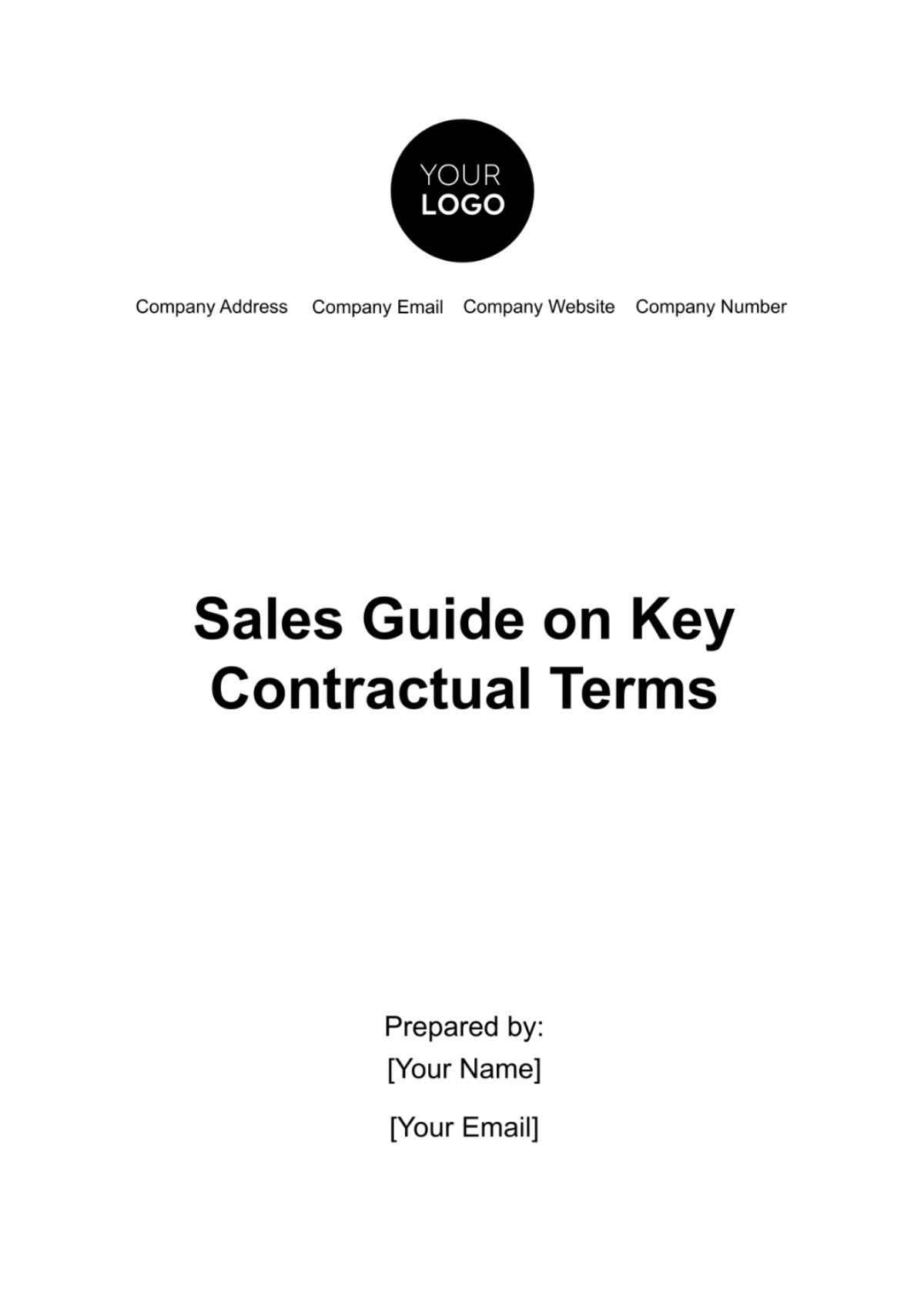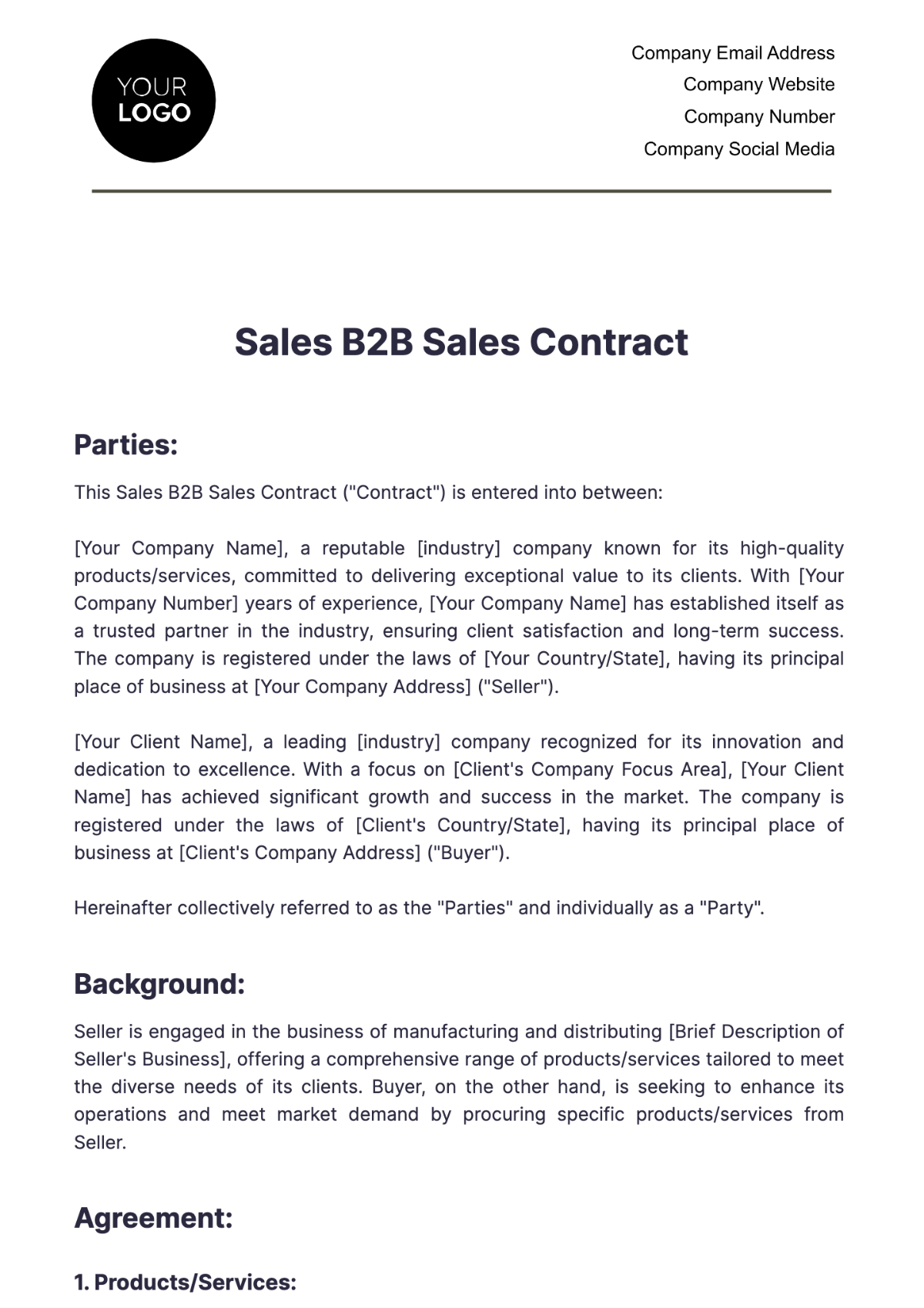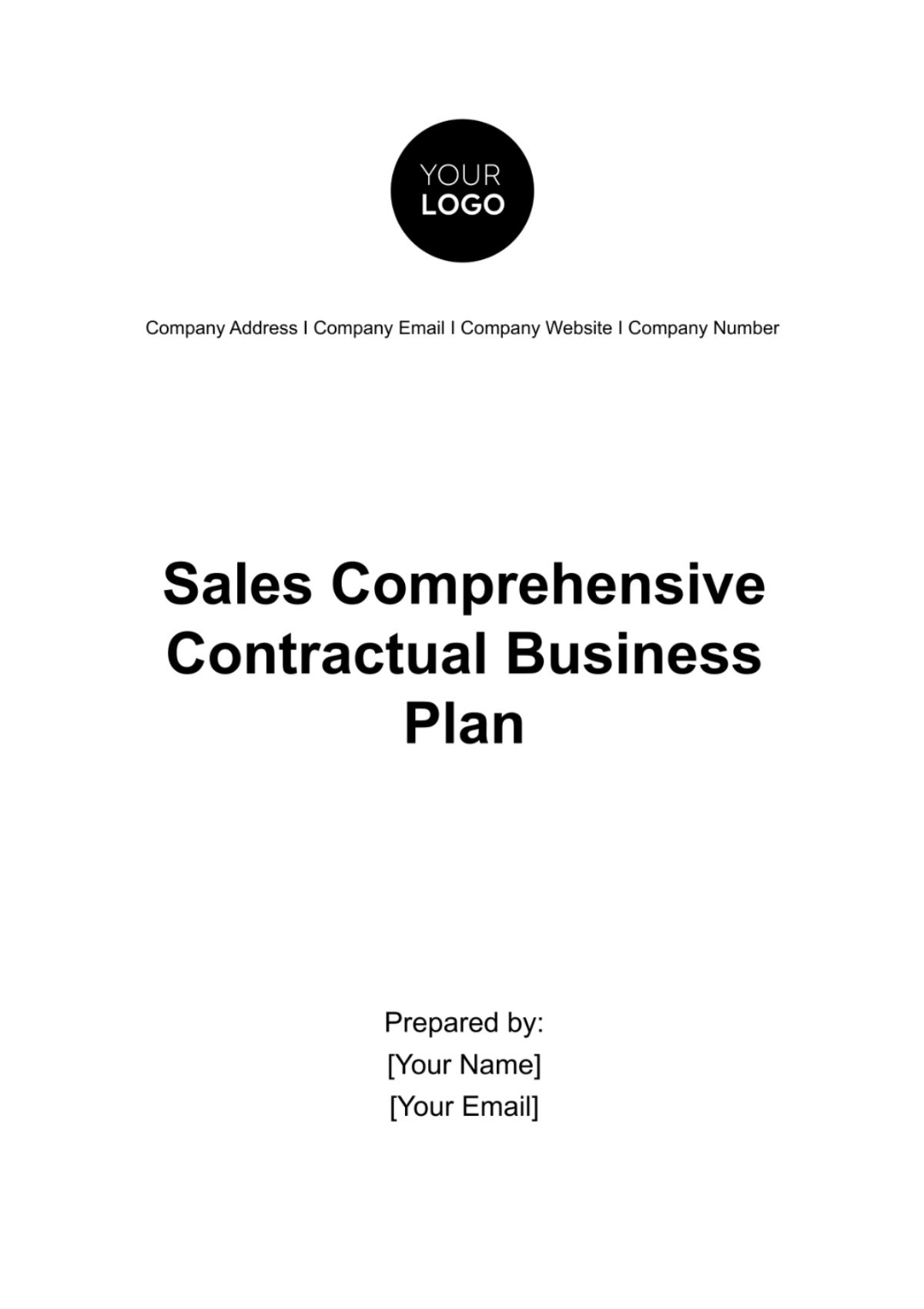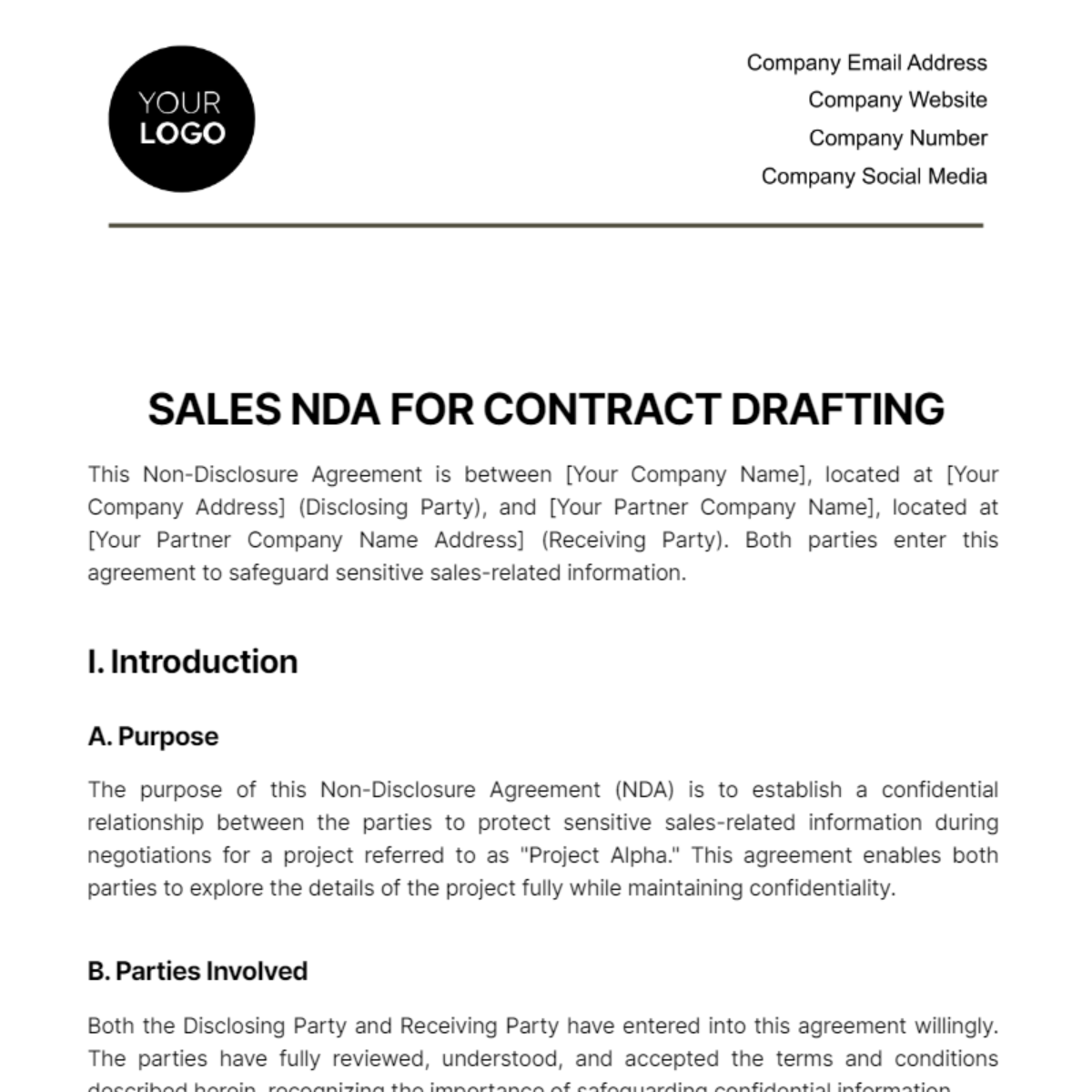Cafe Loan Contract
I. The Parties
This Loan Contract ("Contract") is made and entered into on [Month Day, Year] ("Effective Date") by and between [Your Company Name] hereinafter referred to as the ("Borrower") with a primary place of business at [Your Company Address] and [Lender's Name] hereinafter referred to as the ("Lender") residing at [Lender's Address] collectively referred to as the ("Parties").
WHEREAS, the Borrower seeks financial assistance to expand and grow its cafe business;
WHEREAS, the Lender is willing to provide a loan to the Borrower for business purposes under the terms and conditions specified herein;
WHEREAS, both Parties agree to abide by the terms and conditions stated in this Contract;
NOW THEREFORE, in consideration of the mutual promises and covenants contained herein, the Parties agree as follows:
II. Loan Amount and Disbursement
A. Loan Amount
Loan Provision: The Lender agrees to provide a loan to the Borrower in the amount of [$50,000] ("Loan Amount"). This amount is to be used strictly for the purposes specified in this Contract.
Disbursement Timeline: The Loan Amount will be disbursed to the Borrower within [5] business days from the Effective Date of this Contract. Prompt disbursement ensures the Borrower can commence their planned activities without delay.
Exclusive Use: Both Parties agree that the Loan Amount will be used exclusively for the purposes of the Borrower's cafe business. This ensures the funds contribute directly to business growth and development.
Account Credit: The Loan Amount will be credited to the Borrower's account. The Borrower must provide accurate banking details to facilitate this process.
Additional Funds: No additional funds will be disbursed unless both Parties have executed a written agreement. Any further financial requirements must be formally documented.
B. Loan Disbursement Schedule
Lump Sum Disbursement: The Loan Amount will be disbursed in a lump sum. This single payment allows the Borrower to manage their expenses effectively.
Acknowledgement of Receipt: The Borrower must acknowledge receipt of the Loan Amount within [1] business day. Confirmation of receipt is essential for record-keeping.
Bank Transfer: The disbursement will be made via bank transfer to an account provided by the Borrower. The Borrower must ensure the provided account details are correct.
Associated Fees: All fees associated with the disbursement process shall be borne by the Borrower. The Borrower is responsible for any costs incurred during the transfer.
C. Loan Conditions
Purpose Verification: The Borrower must provide a detailed plan outlining the intended use of the Loan Amount. This plan will be reviewed and approved by the Lender.
Collateral Requirements: The Borrower may be required to provide collateral as security for the loan. The type and value of collateral will be determined by the Lender.
Insurance Coverage: The Borrower must maintain appropriate insurance coverage for the duration of the loan term. Proof of insurance must be provided to the Lender upon request.
III. Interest and Fees
A. Interest Rate
Accrual of Interest: The Loan Amount will accrue interest at an annual rate of [5]% ("Interest Rate"). The interest rate is fixed and will not change during the loan period.
Calculation Basis: Interest will be calculated based on the outstanding principal amount. The interest calculation method is straightforward and transparent.
Monthly Payments: Interest payments will be due on the [last] day of each calendar month. Timely interest payments are crucial for maintaining the loan agreement.
B. Additional Fees
Processing Fee: A processing fee of [$500] will be charged to the Borrower. This fee covers administrative costs associated with the loan application and disbursement.
Bank Fees: The Borrower shall bear any bank or transfer fees associated with loan payment processing. The Borrower must account for these costs in their financial planning.
Notification of Additional Fees: Any additional fees will be communicated to the Borrower [30] days in advance. Transparency regarding fees ensures the Borrower is adequately informed.
C. Fee Adjustments
Periodic Review: Fees and interest rates may be reviewed periodically by the Lender. Any adjustments will be communicated in writing to the Borrower.
Agreement on Adjustments: Any adjustments to fees or interest rates must be mutually agreed upon by both Parties. Written consent ensures both Parties are aware and agree to the changes.
Effect of Adjustments: Adjustments will take effect on the date specified in the written agreement. This provides the Borrower time to adjust their financial plans accordingly.
IV. Repayment Terms
A. Payment Schedule
Installment Payments: The Borrower agrees to repay the Loan Amount in equal monthly installments over a period of [2] years. Regular payments reduce the principal amount steadily.
Principal and Interest: Installments will include both principal and interest amounts. Combined payments simplify the repayment process.
First Installment Due Date: The first installment will be due on the [first] business day of the month following the Effective Date. This allows the Borrower time to prepare for the initial payment.
Subsequent Installments: All subsequent installments will be due on the [first] business day of each following month. Consistent payment dates aid in financial planning.
B. Prepayment
Penalty-Free Prepayment: The Borrower may prepay any portion of the Loan Amount at any time without suffering any penalties. This provides flexibility in managing loan obligations.
Reduction of Principal: Prepaid amounts will be deducted from the principal, thereby reducing future interest payments. Early repayments can significantly decrease overall interest costs.
Notification of Prepayment: The Borrower must notify the Lender in writing at least [5] business days before making any prepayment. This ensures the Lender can process the prepayment appropriately.
Processing Prepayments: All prepayments will be processed on the next payment due date following the notification period. This timing aligns prepayments with regular payment cycles.
C. Late Payments
Grace Period: The Borrower is allowed a grace period of [3] calendar days after the due date to make the payment without incurring late fees. This offers a small buffer for unforeseen delays.
Late Fees: Payments made after the grace period will incur a late fee of [$50] per day. Timely payments are crucial to avoid accumulating additional costs.
Notification of Late Payment: The Borrower must inform the Lender in writing if a payment will be late. Communication helps manage expectations and may prevent further penalties.
Impact on Credit: Late payments may negatively affect the Borrower's credit rating. Maintaining timely payments is important for preserving creditworthiness.
V. Use of Loan
A. Approved Uses
Business Improvements: The Loan Amount shall be used solely for the improvement and expansion of the Borrower's cafe business. This includes significant upgrades and expansions.
Equipment Purchases: Specific business purposes include equipment purchases necessary for cafe operations. This ensures the cafe is well-equipped to serve customers efficiently.
Renovation Costs: Funds may also be allocated to renovation costs to enhance the cafe’s ambiance and functionality. Attractive premises can attract more customers.
Marketing Expenses: Marketing expenses to promote the cafe are an approved use of the loan. Effective marketing can increase customer base and revenue.
B. Reporting
Quarterly Reports: The Borrower must provide a quarterly report to the Lender detailing the use of the Loan Amount. Regular reporting ensures transparency and accountability.
Report Contents: Reports must include detailed descriptions of how the funds were utilized. This helps the Lender verify the loan is being used as intended.
Compliance: Utilization of the loan for any purposes not approved in this Contract is prohibited. Misuse of funds can result in penalties or contract termination.
C. Audit Rights
Right to Audit: The Lender reserves the right to audit the Borrower’s use of the Loan Amount. Audits ensure the loan is being used as intended.
Audit Notification: The Lender must notify the Borrower at least [10] business days in advance before conducting an audit. This allows the Borrower to prepare necessary documentation.
Access to Records: The Borrower must provide access to all relevant financial records and documentation. Transparency during audits ensures compliance with loan terms.
Audit Costs: The costs associated with the audit will be borne by the Lender, unless misuse of funds is discovered. This ensures the Borrower is not unduly burdened by audit expenses.
VI. Borrower’s Covenants
A. Maintaining Business Operations
Continuous Operation: The Borrower agrees to maintain its cafe business in operation during the term of this Contract. Business continuity is essential for loan repayment.
Notification of Changes: The Borrower must notify the Lender of any significant changes to the business structure or operations. Transparency helps manage risks associated with the loan.
Operational Plan: A detailed operational plan must be provided if requested by the Lender. This plan demonstrates the Borrower’s strategy for business success.
Breach of Contract: Failure to maintain business operations may be considered a breach of this Contract. Continuous operation is a fundamental obligation under this agreement.
B. Financial Reporting
Quarterly Financial Statements: The Borrower agrees to provide the Lender with quarterly financial statements. Regular financial reporting ensures the Borrower’s financial health is monitored.
Statement Contents: Financial statements must include balance sheets, income statements, and cash flow statements. Comprehensive reports provide a clear picture of the Borrower’s financial status.
Audit Rights: The Borrower must permit the Lender to audit the financial records upon request. Audits verify the accuracy of financial reporting.
Certification: All financial reports must be certified by the Borrower’s accounting officer or firm. Certification ensures the reports are accurate and reliable.
C. Compliance with Laws
Legal Compliance: The Borrower must comply with all applicable laws and regulations related to the operation of their cafe business. Legal compliance is essential for business stability.
Permits and Licenses: The Borrower must maintain all necessary permits and licenses required for their business operations. Proper documentation ensures legal operation.
Tax Obligations: The Borrower must fulfill all tax obligations in a timely manner. Proper tax management is crucial for financial stability and legal compliance.
Environmental Regulations: The Borrower must adhere to all environmental regulations applicable to their business. Compliance helps avoid legal issues and promotes sustainability.
VII. Default
A. Events of Default
Payment Failure: Failure to make any payment when due constitutes an event of default. Timely payments are crucial to maintain the loan agreement.
Misuse of Funds: Using the Loan Amount for purposes not approved in this Contract constitutes an event of default. Funds must be used strictly for the intended purposes.
Business Operation Failure: Failure to maintain business operations may also be considered an event of default. Continuous operation is a key obligation.
Reporting Failures: Not providing necessary financial reports or permitting an audit constitutes an event of default. Transparency and compliance are essential.
Breach of Covenants: Violation of any other covenants in this Contract also constitutes an event of default. All terms and conditions must be adhered to.
B. Remedies in Case of Default
Immediate Repayment: In the event of default, the Lender may demand immediate repayment of the outstanding loan balance. This ensures the Lender can recover the loan quickly.
Additional Penalties: The Lender reserves the right to apply additional penalties as outlined in this Contract. Penalties provide a deterrent against default.
Legal Actions: Legal actions may be initiated by the Lender to recover the loan amount in the event of default. Legal recourse ensures the Lender can enforce the contract terms.
Seizure of Collateral: If collateral was provided, the Lender may seize the collateral to recover the loan amount. Collateral provides security for the loan.
Interest Accrual: Interest will continue to accrue on the outstanding loan balance until it is fully repaid. Ongoing interest ensures the Lender is compensated for the delay.
C. Notification of Default
Written Notice: The Lender must provide written notice to the Borrower in the event of default. Formal notification ensures the Borrower is aware of the default.
Correction Period: The Borrower may be given a period to correct the default before further actions are taken. This provides an opportunity to resolve issues amicably.
Default Consequences: The notice will outline the consequences of the default and the actions the Lender intends to take. Clear communication helps manage expectations.
Legal Costs: The Borrower may be responsible for any legal costs incurred by the Lender in recovering the loan amount. Legal costs are an additional consequence of default.
VIII. Confidentiality
A. Non-Disclosure of Sensitive Information
Confidentiality Agreement: The Parties agree to keep all loan details confidential. Confidentiality protects both Parties' interests.
Restriction on Disclosure: Sensitive information shall not be disclosed to any third parties without prior written consent. This ensures information is shared only with appropriate parties.
Legal Obligations: Disclosure of sensitive information due to legal obligations must be communicated in advance. Both Parties must be aware of any required disclosures.
Confidentiality Breach: Any breach of confidentiality may result in legal actions. Protecting sensitive information is crucial for trust and security.
B. Return of Confidential Information
End of Contract Obligations: Upon termination of this Contract, all confidential information must be returned to the Lender. This ensures the Borrower no longer holds sensitive information.
Purging Records: The Borrower must purge all copies of sensitive information from its records. Complete removal of information ensures confidentiality.
Compliance Declaration: A declaration of compliance must be provided to the Lender within [30] days of Contract termination. This confirms that all confidential information has been returned and purged.
C. Data Protection
Data Security Measures: The Borrower must implement data security measures to protect confidential information. Proper measures ensure information is safeguarded.
Access Control: Access to confidential information must be restricted to authorized personnel only. This limits the risk of unauthorized disclosure.
Data Breach Notification: The Borrower must notify the Lender immediately in the event of a data breach. Prompt notification helps mitigate the impact of the breach.
IX. Governing Law
A. Applicable Law
State Law: This Contract will be governed by and construed in accordance with the laws of the state of [State Name]. This ensures legal consistency and clarity.
Jurisdiction: Both Parties hereby consent to the exclusive jurisdiction and venue of such courts. This provides a clear legal framework for dispute resolution.
B. Dispute Resolution
Initial Discussions: The Parties shall first attempt to resolve any disputes through mutual discussions. Amicable resolution is preferred.
Mediation: If disputes cannot be resolved through discussions, the Parties agree to engage in mediation. Mediation provides a neutral platform for resolving disagreements.
Court Proceedings: If mediation fails, disputes may be resolved under the jurisdiction of the appropriate courts in [State Name]. This ensures a final resolution through the legal system.
C. Arbitration
Arbitration Agreement: Both Parties agree to submit unresolved disputes to binding arbitration. Arbitration provides a faster, less formal resolution process.
Arbitration Venue: The arbitration will take place in a location mutually agreed upon by the Parties. The venue should be convenient for both Parties.
Arbitration Costs: The costs of arbitration will be borne equally by both Parties unless otherwise agreed. Shared costs encourage fair participation.
Final Decision: The arbitrator's decision will be final and binding. Both Parties must adhere to the decision.
X. Miscellaneous
A. Amendments
Written Amendments: This Contract may only be amended by a written agreement executed by both Parties. Written amendments ensure clarity and mutual consent.
Dated and Signed: All amendments must be dated and signed by authorized representatives of both Parties. This provides a formal record of changes.
No Verbal Agreements: Verbal agreements or amendments shall have no binding effect unless reduced to writing. Written documentation ensures enforceability.
B. Notice
Written Notice: Any notice required under this Contract must be in writing. Written notices ensure clear communication.
Specified Addresses: Notices must be sent to the addresses specified in the opening clause of this Contract. Using specified addresses ensures notices reach the correct parties.
Email Confirmation: Electronic mail notices must be confirmed via a read receipt to be deemed delivered. Read receipts provide confirmation of receipt.
C. Entire Agreement
Complete Agreement: This Contract constitutes the entire understanding between the Parties concerning the subject matter hereof. It supersedes all prior agreements.
No Other Agreements: There are no other agreements, representations, or warranties except as expressly set forth herein. All terms are contained within this document.
Binding Effect: This Contract shall be binding upon and inure to the benefit of the Parties and their respective successors and assigns. Both Parties must adhere to the terms.
D. Severability
Severable Provisions: If any provision of this Contract is found to be illegal or unenforceable, the remaining provisions shall remain in full force and effect. The Contract continues to operate effectively.
Replacement Provision: The Parties shall negotiate in good faith to replace any illegal or unenforceable provision with a valid one that closely matches the original intent. This ensures the Contract remains functional.
Interpretation: Any invalid provision shall be interpreted in a manner that reflects the original intention of the Parties. The spirit of the Contract is preserved.
XI. Signatures
IN WITNESS WHEREOF, the Parties hereto have executed this Contract as of the Effective Date.
Borrower

[Authorized Representative Name]
[Your Company Name]
Date: [Month Day, Year]
Lender

[Authorized Representative Name]
[Lender's Name]
Date: [Month Day, Year]
